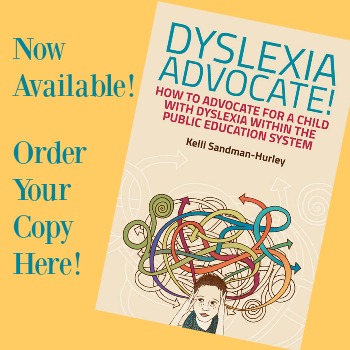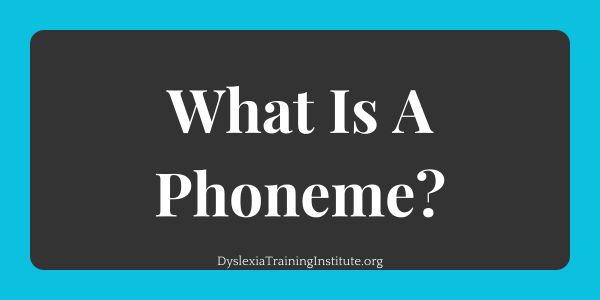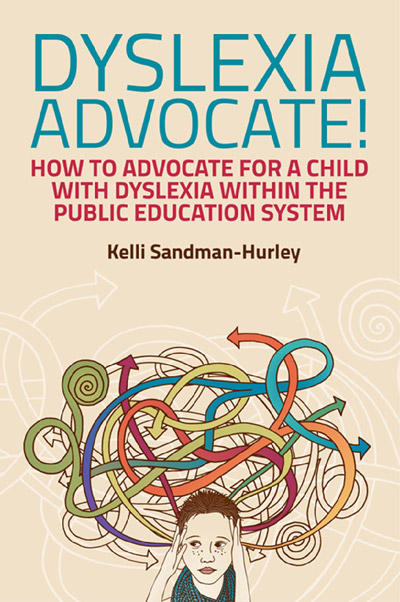 Download the PDF of this article here.
Download the PDF of this article here.
Writing articles and then publishing can be fun, satisfying and hopefully, helpful to those who read them. But every author knows that it takes a certain amount of courage to put your thoughts on paper, or on video, and send it out to the world. Every author knows, or should know, that someone will (and should) scrutinize anything that is published. In my case, I usually welcome the scrutiny because it keeps me on my toes. It requires that I do not become complacent or lazy. It requires that I do my due diligence and make sure I am as accurate as possible before I publish anything. If I make a mistake, and who doesn’t, I learn from each and every one.
Today, I received an email regarding my What is Dyslexia? video on Ted-Ed, and I wanted to share it with you because I thought it will accomplish a few things. First, it will highlight all the misconceptions that are still rampant in our schools and general public. Second, it might work as a guide for anyone else who comes into contact with similar comments. So, below is the email I received. My responses are in italics. Enjoy, I know I did.
Emailer (School Psychologist): The first is the notion that Albert Einstein was dyslexic. I have neither the time nor the inclination to locate a more scholarly source, so I hope that the following link will suffice: http://dyslexia.learninginfo.org/einstein.htm
Me: I also do not have the time or the inclination to address this issue, other than to say that we can agree to disagree. However, in the short time I did spend reading the link you sent I noticed that it did not address any analysis of Einstein’s writing, which might show some evidence of dyslexia. (If he can’t be bothered to do the research, neither can I)
Emailer (School Psychologist): Another area of concern was your propagation of the right brain/left brain falsehood—see https://writix.co.uk/blog/left-right-brain-myth-debunked
Me: This has come up several times about this video and the same link has been used to try to make this case. Before I begin to explain my video to you, I would like to let you know that I ran this by neurologists and neuroscientists alike before I ever thought about publishing this video. Now the article you sent me and the general idea that I have promulgated the left brain/right brain idea are flat out wrong. The article you sent is referring to the idea that the personality characteristics of people are determined by whether they are left and right brained. In this video, and in my practice, I do not work with personality constructs; rather I am working with the physical fact that the brain physically contains areas that process language on the left hemisphere of the brain. What my video is demonstrating is that those with dyslexia (which is a physical/neuronal difficulty with reading) process incoming written language via a neural pathway that takes an alternate route through the right hemisphere of the brain. These are all physical truths that have their basis in research. I have attached a link so that you can see the brain processing different information via fMRI which measure blood flow (in its simplest explanation). The right/left brain hypothesis that you are suggesting I am suggesting is a theory and dyslexia is not a theory. If you have held a brain or seen one dissected, you will know that the brain does contain areas, which are physical, and which do control specific actions, such as processing written language.
I would suggest you pick up the following books:
Overcoming Dyslexia
Reading in the Brain
Proust and the Squid

Emailer (School Psychologist): Finally, your statement that dyslexia is not related to vision is simplistic and misleading—see http://www.ncbi.nlm.nih.gov/pmc/articles/PMC3925989/ –or a nice little power point at http://www.oxfordkobe.com/VisualProblems.pdf
Me: Ah yes, the old vision debate. It’s a little like debating the fact that <-tion> and <-sion> are suffixes, when they are not (the Latinate <-ion> is the suffix), they don’t exist, just like vision is not the cause of dyslexia. Dyslexia is not a vision-related problem. Those with dyslexia see everything the same way those without dyslexia do. Here is a link to the American Academy of Ophthalmologists statement they released after conducting a meta-analysis. Also, if you read Reading in the Brain you will get a much better explanation regarding the vision related controversy. The PPT you attached did not cite any specific research and was highly speculative. (http://pediatrics.aappublications.org/content/124/2/837.full.pdf)
Emailer (School Psychologist): I am a School Psychologist and work with learning disabled children every day. It pains me to see inaccuracies like this spread, because in the long term they will only harm both dyslexics and the field.
Me: Likewise, as a dyslexia advocate and expert, it always pains me to hear school staff tell parents and students things about dyslexia, or deny the existence of dyslexia, with little to no research to back up their claims.
I am happy to keep an open discourse with you if you have more concerns.
Respectfully Submitted,
Kelli






Nice job, wow! 30 plus years working with SLD kids and I agree, dyslexia is not a vision problem!!